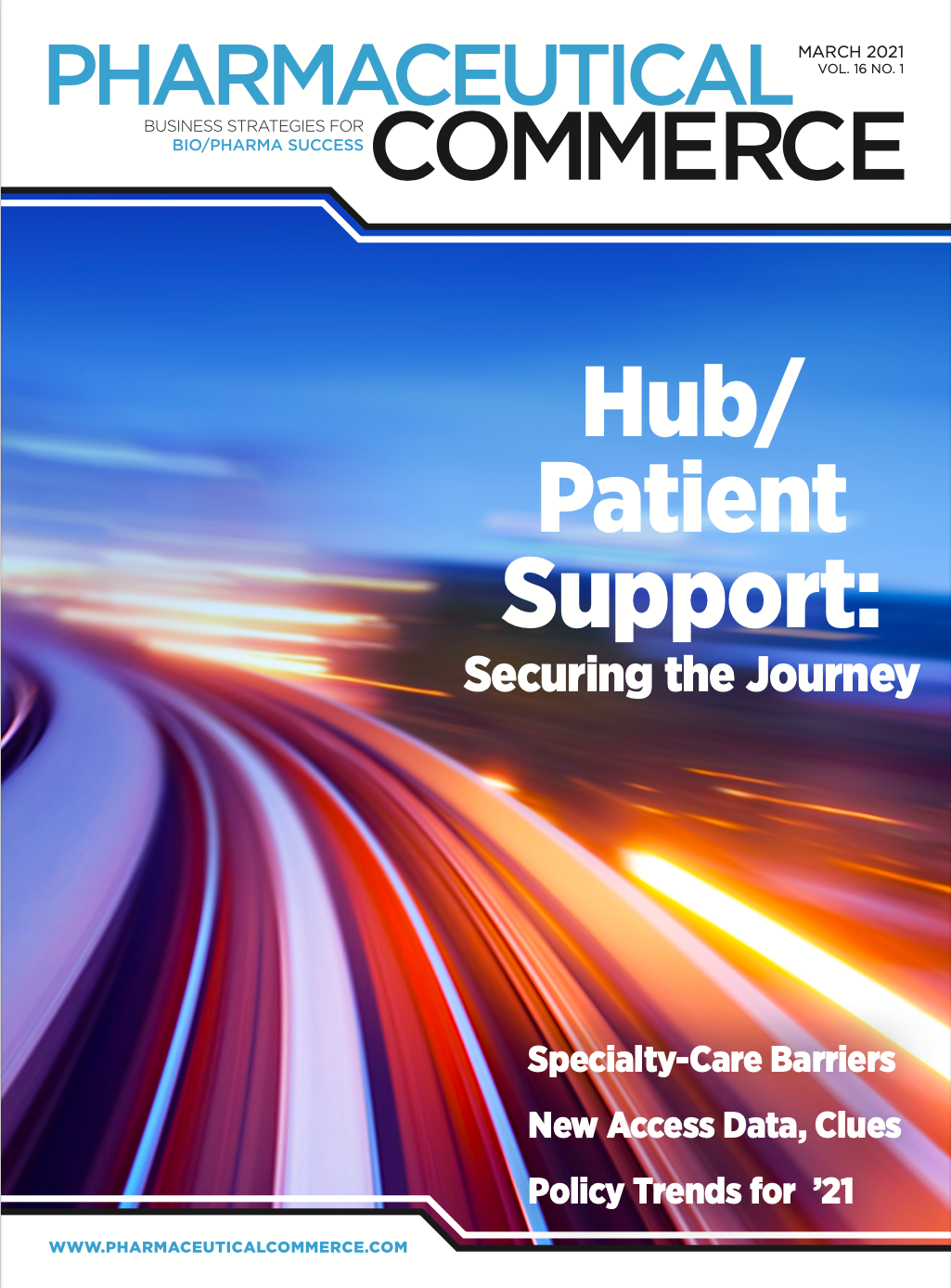Rethinking NCPs in support mix
Non-commercial pharmacies can be secret weapons for intake and adherence
There’s no question that when it comes to helping patients start and stay on their specialty medications, efficiency should rule from the moment the prescription is written. Every delay impedes the start of potentially life-saving therapy and decreases the likelihood of a patient receiving the first dose.
And while non-commercial pharmacies (NCPs) are well known as distribution channels for free products, reimagining how they function can greatly simplify the administrative process for providers and their staff, help patients get on their medications faster and provide value throughout the entire patient support journey.
Imagine a busy oncology office where a new patient requires multiple specialty medications to treat her condition, all of which are prescribed through different hubs, require prior authorizations and need to be filled quickly so she can begin her therapy as soon as possible.
An NCP can act as a streamlined, one-step enrollment channel, allowing the provider’s staff to remain in a single workflow and use the e-prescription module they already use. This eliminates the need to exit the patient’s electronic health record (EHR), log in to different enrollment portals, find and manually fill out paper forms and fax documents. The provider simply chooses the NCP to receive the Rx for the drug, just like they would any retail pharmacy at the point of prescribing.
Using the NCP to order the medication automatically enrolls the patient in the hub, enabling near instantaneous access to understand patient eligibility, drug coverage and even out-of-pocket cost. Providers don’t need to enter the data because it is already in the EHR, and the relevant information is automatically transferred to the prescription.
The extended period of waiting on payers to manually process prior authorizations (PAs) disappears, replaced by faster—often real-time—approvals and the ability to easily move patients along to the next step. In-workflow, EHR prescribing gives the provider visbility into PAs when they are writing the prescription—and gives patients access to their medication days or even weeks faster. The time that providers would normally have spent dealing with authorizations can now be used where it belongs: strengthening the relationship with the patient.
When a PA or letter of medical necessity is required, a concierge team can immediately activate that on behalf of the provider, also within the EHR workflow. This is a win-win scenario for all sides of the equation: the PA or letter can be expedited using the existing, streamlined system, and the patient is able to more easily and quickly get the necessary treatment.
The NCP makes the starting process easy, automated and seamless so the rest of the necessary patient support services can be put to work. Ultimately, making it faster and easier for patients to get started on their medications is just one of many successful strategies for improving adherence.
Additional services like mobile apps are also powerful tools for overcoming adherence barriers, especially during times when face-to-face interaction is limited. Enabling direct outreach to patients on their terms helps them get their medications faster and understand what to do at every step. For example, a text message can alert them that their specialty pharmacy will be contacting them and from what phone number. Tools like this that patients can use when and where they want empower them to become more actively involved in managing their own care, leading to improved adherence.
The days of archaic faxing and bouncing between multiple portals are quickly waning as automation takes hold. Leveraging an NCP within existing workflows turns what for years has been a laborious multi-step exercise into a streamlined and simple patient enrollment process, dramatically decreasing the burden on providers. Ultimately, rethinking NCPs helps patients get on their therapy more quickly, helps them stay on it and simplifies their entire medication journey.
About the Author

Julia Laurin is Chief Product Officer at ConnectiveRx. She can be reached at [email protected].
